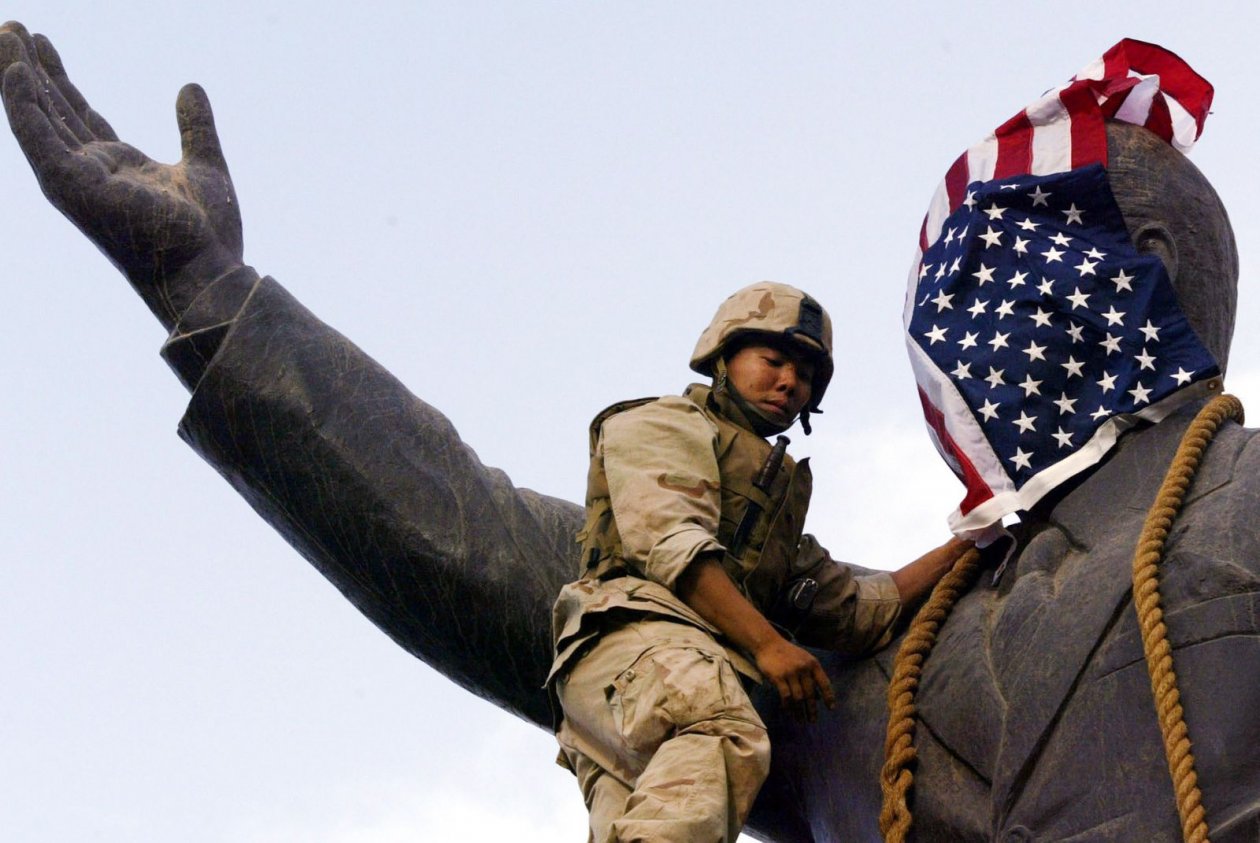The War in Iraq Exposed Huge Flaws in American Strategic Thinking

An extensive U.S. Army study of the war contends that “the overwhelming majority of decisions in the Iraq War were made by highly intelligent, highly experienced, leaders.” However, it concludes that the “failure to achieve our strategic objectives” derived from reasoning that contained “systemic failures,” and high among these was that “U.S. leaders seemed to believe that other regional nations would not react.”
In the wake of the September 11, 2001 terrorist attacks in the United States, President George W. Bush, who had come into office proposing a humble foreign policy, abruptly reversed course. He now proclaimed that the country’s “responsibility to history” was now to “rid the world of evil”—quite the boast given human history.
Then, a few months later, Bush specified in a major speech that, while evil presumably lurked everywhere, a special “axis of evil” existed, and it was primarily located in North Korea, Iran, and Iraq.
Iran fully realized it was in trouble, as did Syria, which also sometimes appeared on the target list provided almost daily by Bush and his coterie of cheer-leading neoconservatives. If they needed further confirmation, defense advisor Richard Perle exultantly suggested not long after the invasion of Iraq that a short message should now be delivered to other hostile regimes in the area: “You’re next.”
It was accordingly clearly in the best, even supreme, interest of the regimes running North Korea and Syria to work closely with, and to provide sanctuary for, friendly Shias in Iraq to make the American tenure in Iraq as miserable as possible. Meanwhile, similarly threatened North Korea formally withdrew from the Non-Proliferation Treaty and worked dedicatedly to obtain nuclear weapons to deter an American attack.
In addition to Iran and Syria, other outsiders were drawn to Iraq and dedicated to sabotaging the occupier’s peace and to killing its occupying forces. In particular, a Jordanian, Abu Musab al-Zarqawi, a Sunni who sympathized with al-Qaeda’s ideology and agenda, became the leader of a small army of dedicated and brutal terrorists numbering perhaps in the thousands.
Zarqawi’s connection to al-Qaeda may have helped to attract recruits and to generate financial and logistical support, and he was further benefited by the tendency of the Americans to credit his forces with a far larger portion of the violence in Iraq than they probably committed, a process that also helped to burnish Zarqawi’s image in much of the Muslim world as a resistance hero.
However, the mindless brutalities of Zarqawi’s forces—staging beheadings at mosques, bombing playgrounds, taking over hospitals, executing ordinary citizens, performing forced marriages—eventually proved to be self-destructive, turning Iraqis against them, including many of those who had previously been fighting the American occupation either on their own or in connection with Zarqawi.
Helped enormously by the alienation between jihadist marauders and Iraqi tribes, the U.S. military was able to bring civil warfare under some degree of control in Iraq by 2009. However, the campaign to do so—the surge, it was called—cost over 1,000 American lives, seven times greater than the United States had lost in the 2003 invasion.
Zarqawi’s Sunni forces were thus eventually defeated, but this came about only after they had visited considerable destruction upon the occupiers.
On the other hand, Iran continued, and continues, to be a harassing element, impelled as well now by resentment over the sanctions leveled against it. Indeed, the Army study strikingly, if dismally, concludes in its assessment of the war in Iraq that “Iran appears to be the only victor.”
In 2010, briefers pointed out to top American generals in Afghanistan that no counterinsurgency effort on record had succeeded when the insurgents had access to a deep cross-border sanctuary. Although they added that that they hoped the situation in Afghanistan would prove to be an exception, it has not proven to be one more than a decade later.
The related experience in Iraq suggests that the briefers had it essentially right. Unless the United States wants directly to go to all-out war with Iran—creating yet another disaster in the Middle East—the Iranians can keep this up forever.
Source: National Interest





